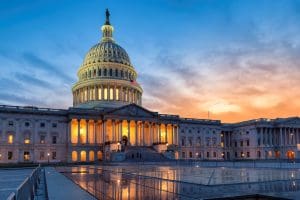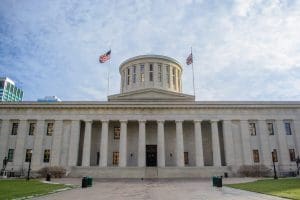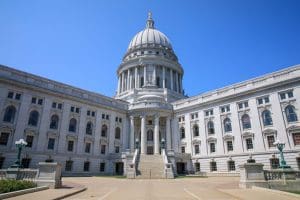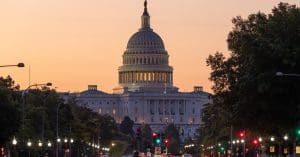The economic crisis caused by the coronavirus pandemic poses a triple challenge for tax policy in the United States. Lawmakers are tasked with crafting a policy response that will accelerate the economic recovery, reduce the mounting deficit, and protect the most vulnerable.
To assist lawmakers in navigating the challenge, and to help the American public understand the tax changes being proposed, the Tax Foundation’s Center for Federal Tax Policy modeled how 70 potential changes to the tax code would affect the U.S. economy, distribution of the tax burden, and federal revenue.
In tax policy there is an ever-present trade-off among how much revenue a tax will raise, who bears the burden of a tax, and what impact a tax will have on economic growth. Armed with the information in our new book, Options for Reforming America’s Tax Code 2.0, policymakers can debate the relative merits and trade-offs of each option to improve the tax code in a post-pandemic world.

Policymakers Offer Proposals to Fix Three Upcoming Tax Changes
Three upcoming tax law changes scheduled by the 2017 Tax Cuts and Jobs Act (TCJA) to help offset its revenue losses would be canceled by proposed legislation that would prevent the tax treatment of investment from worsening over the coming years.
4 min read

Ohio Lawmakers Agree on Income Tax Cuts and Remote Work Tax Relief
A rosy revenue outlook has allowed Ohio to join eight other states in providing tax relief this legislative session. The Ohio legislature agreed on a two-year budget, which includes individual income tax cuts.
4 min read
Wisconsin Legislature Considering Several Pro-Growth Tax Reforms
Reducing the second-highest individual income tax rate, repealing the TPP tax, and freezing UI tax rates are three valuable reforms that would help promote a smooth economic recovery in Wisconsin while setting the state up for robust economic growth for years to come.
6 min read
How the Tax Code Handles Inflation (and How It Doesn’t)
While parts of the U.S. tax code can handle inflation, full expensing of capital investment would be a major improvement along these lines.
5 min read
Trade-offs of Expanding Individual Tax Credits While Repealing SALT Deduction
Expanding the generosity of tax credits for lower-income individuals can help make the tax code more progressive, but it also reduces federal revenue. Pairing a credit expansion with a tax offset may sustain federal revenue but can also hamper economic growth.
3 min read
New Hampshire Closes in on Tax Cuts to Enhance State’s Competitive Advantage
New Hampshire lawmakers are scheduled to take up a budget conference report which contains several tax reforms negotiated by both chambers that would ultimately make New Hampshire the ninth state to impose no tax on individual income. These reforms floated at the beginning of the 2021 session found their way into HB 2, including rate reductions in the Business Profits Tax (BPT) and Business Enterprise Tax (BET) and a phaseout of the interest and dividends tax.
4 min read

Boost Semiconductor Manufacturing by Removing Tax Barriers—Not Creating Tax Subsidies
A bipartisan group of Senators introduced a bill to create a permanent 25 percent tax credit for investments in semiconductor manufacturing equipment and construction of related facilities—but their proposal would not address underlying bias against investment that exists in the tax code today.
3 min read
Spain Determined to Cash in on Digital Services Tax
Spain’s digital services tax levies a 3 percent tax on revenues from online ads, deals brokered on digital platforms, and sales of user data by tech companies with at least €750 million (US $893 million) in total annual worldwide revenues and Spanish revenues of €3 million ($3.57 million).
4 min read